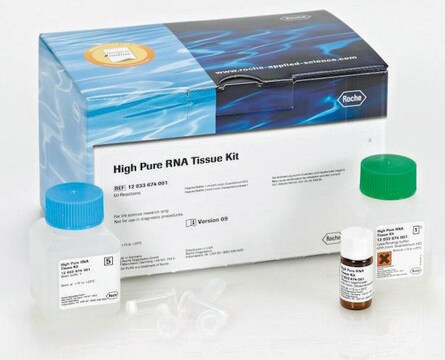MAS006
Pyruvate Quick Test Strips
Sufficient for 10 tests
Synonyme(s) :
Pyruvic Acid Quick Test Strips
About This Item
Produits recommandés
Conditions de stockage
(Keep container tightly closed in a dry and well -ventilated place. Keep away from heat and sources of ignition.)
Entrée
serum
urine
plasma
food(s)
beverage(s)
Application(s)
food and beverages
Méthode de détection
colorimetric
Température de stockage
2-8°C
Description générale
Application
Caractéristiques et avantages
Quick Results: Sample treatment and assay can be completed in under 15 minutes, ensuring efficiency.
User-Friendly Design: Convenient test strip design eliminates the requirement for a plate or cuvette reader, simplifying the testing process.
Adéquation
Principe
Autres remarques
Mention d'avertissement
Danger
Mentions de danger
Conseils de prudence
Classification des risques
Carc. 2 - Eye Irrit. 2 - Flam. Liq. 2 - STOT SE 3
Organes cibles
Central nervous system
Risques supp
Code de la classe de stockage
3 - Flammable liquids
Point d'éclair (°F)
1.4 °F
Point d'éclair (°C)
-17 °C
Certificats d'analyse (COA)
Recherchez un Certificats d'analyse (COA) en saisissant le numéro de lot du produit. Les numéros de lot figurent sur l'étiquette du produit après les mots "Lot" ou "Batch".
Déjà en possession de ce produit ?
Retrouvez la documentation relative aux produits que vous avez récemment achetés dans la Bibliothèque de documents.
Notre équipe de scientifiques dispose d'une expérience dans tous les secteurs de la recherche, notamment en sciences de la vie, science des matériaux, synthèse chimique, chromatographie, analyse et dans de nombreux autres domaines..
Contacter notre Service technique








